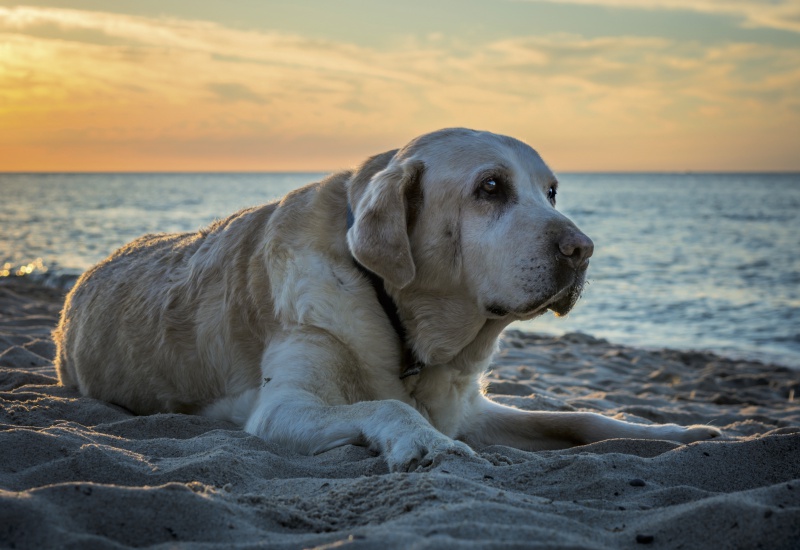Aging in dogs
Time passes quickly, we don't necessarily realize it because we live with our dog on a daily basis, but he ages faster than we do. A small dog is considered senior from 8 to 10 years old, a larger dog from 5 to 7 years old. Today, there are many ways to provide a good quality of life for senior dogs. The important thing is to act in prevention and to take into account the well-being of your dog...
Recognizing the signs of aging
There is no specific sign of aging, but there are many signs of conditions that are more common in older animals.
Although osteoarthritis is not necessarily related to the age of the animal, it does affect a number of older dogs. As a dog ages, it may have locomotor difficulties, decreased mobility, stiffness, reluctance to walk...
Drinking may increase due to certain diseases: polyuro-polydipsia is when a dog drinks more than normal (and urinates more than normal).
The coat and skin can also be affected: duller coat, drier or more oily skin, white hair, appearance of warts, small lumps, etc...
The vision can decrease because of an opacification of the crystalline lens related to the ageing of this one, one speaks about cataract of the old dog.
Behavior can also be modified, we talk about age-related confusional syndrome when the dog does not respond well to the stimuli of its environment (it remains apathetic despite the requests to play, interact, etc.), sleeps a lot, loses its bearings, loses learning, presents anxiety...
Pampering older pets
It is very important to maintain an ideal weight in older animals (as at any age, but you should not think that it is not important anymore!).
Indeed, overweight aggravates many diseases (harmful effects on the joints for example).
A loss of weight should also be a cause for alarm, it is not normal in an aging animal and should alert to a medical cause that should be sought.
It is essential to give the older dog a balanced diet adapted to its needs as an older animal.
Foods containing antioxidants, for example, or omega-3 polyunsaturated fatty acids can be a real plus for the older dog.
Some dietary supplements can also be added to the diet of older dogs, but be careful not to look for a miracle cocktail. The needs of each dog must be clinically evaluated.
It is important to continue to play, to go out and walk a senior dog, he still needs a special relationship with you, cognitive expenditure, attention, etc...
A regular follow-up with your veterinarian will allow you to detect signs of disease as early as possible and to implement a treatment early enough.
It is also important to continue to vaccinate your dog by following an adapted and reasoned vaccination protocol established with your veterinarian.
And above all, your elderly dog needs your kindness and support, your presence. Surround him with all your love 🙂

